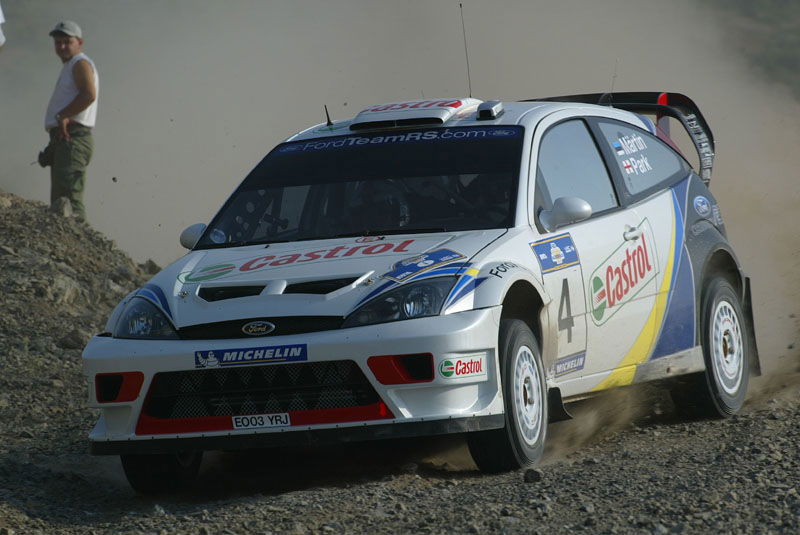Technical talk - Servicing in Greece.
With searing temperatures, thick dust and razor sharp rocks, the rate of attrition on the Acropolis Rally of Greece is one of the highest of the season. The WRC cars are subjected to a constant pounding from the stages, making the event's 9 x 20 minute and 2 x 45 minute services in Lamia absolutely vital.
Here 555 Subaru World Rally Team technical support manager, Simon Steele, talks about the steps taken to maximise the limited service time available.

With searing temperatures, thick dust and razor sharp rocks, the rate of attrition on the Acropolis Rally of Greece is one of the highest of the season. The WRC cars are subjected to a constant pounding from the stages, making the event's 9 x 20 minute and 2 x 45 minute services in Lamia absolutely vital.
Here 555 Subaru World Rally Team technical support manager, Simon Steele, talks about the steps taken to maximise the limited service time available.
''Compared to an asphalt event, Greece and Cyprus are very tough on the cars, but wherever possible we adopt the same tried and tested service strategy - to deal with all the regular checks first and then repair any additional damage,'' noted Steele, ''However, one important addition in Greece is an extra thorough visual examination of the car before we attempt anything.
''Once the car is jacked up, each mechanic will visually check their corner, that's the suspension, brakes, wheels and TCA [track control arm], for any damage, bends or cracks before the usual spanner and torque check. Only then do the wheels come off. These visual examinations really can make or break a rally.
''If one of the car's 15-inch cast magnesium wheels is knocked out of shape and re-used, it could eventually damage the car's suspension and that would be game over.
''We also check all other areas, including the sump guard, which protects the underneath of the car, the transmission system, engine, as well as the inside the car. Dust in the cockpit is always an indicator of potential problem - but thankfully it's something we don't experience very often.
''To cope with the expected service work-load here, we've brought three extra technicians. That makes six technicians per car [one for each corner and two 'floaters']. Normally we have five technicians per car with one 'floater'. We've also brought along an additional engine technician to help on both cars.''






